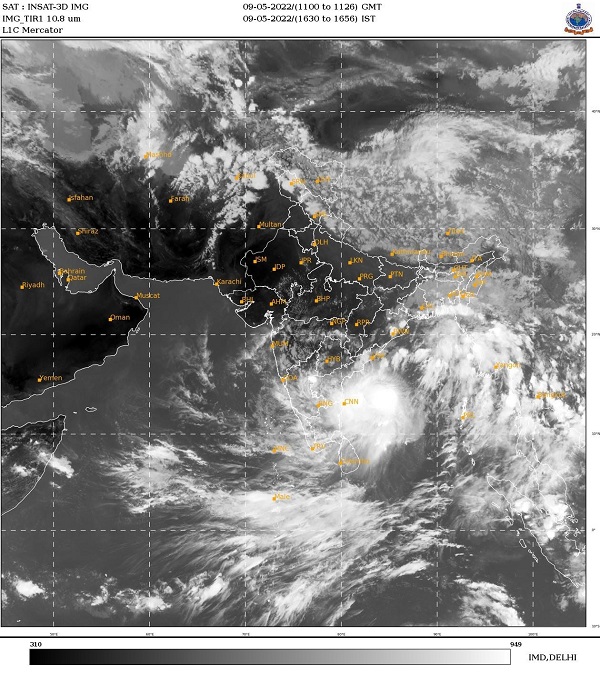New Delhi, (Asian independent) Even as Sri Lanka witnesses a political implosion in wake of its people’s wrath, Sinhalese word ‘Asani’ (wrath in English) assumed significance along the coastline of the Bay of Bengal, not just in India but also in Bangladesh and Myanmar.
From the time there was a low pressure area (LPA), through its development as well-marked LPA to depression to deep depression to first cyclonic storm to now Severe Cyclonic Storm Asani, that is surging ahead in all its ferocity towards Andhra Pradesh coast, the India Meteorological Department (IMD) has been issuing three-hourly bulletins that go out to not just for public consumption and to relevant states but also to all South Asian countries.
Tropical cyclones of any intensity have devastating impacts with the violent winds, heavy to extremely heavy rainfall, not to mention coastal storm surges all having the potential to wreak havoc in its path. Loss of life, property and damage to large infrastructure are among the immediate problems that the country in its path faces apart from the long term impacts.
A robust Early Warning System (EWS) can help mitigate much of the damage.
The World Meteorological Organisation (WMO) designated IMD as one of the five Regional Specialised Meteorological Centres (RSMCs) for Tropical Cyclones set up across the globe. Each of these are given the task of issuing advisories for the geographical areas assigned by the WMO.
Catering to entire Indian Ocean rim countries, IMD issues advisories for any upcoming tropical cyclones to 13 member nations – Bangladesh, Iran, Maldives, Myanmar, Oman, Pakistan, Qatar, Saudi Arabia, Sri Lanka, Thailand, the UAE and Yemen, and of course for whole of India.
As part of this duty, the IMD has been issuing three-hourly bulletins. “The cyclone status, position etc. as part of the forecast and the inference is common to all. We not just send it to all countries in the region that we are supposed to, but also ensure from the affected country that they have received it,” Ananda Kumar Das, senior scientist at the RSMC, New Delhi, said.
Most of these countries do not have their own cyclone warning forecast, and hence they rely entirely on the IMD.
“However, we issue bulletins only for cyclonic systems. For instance, once this Severe Cyclone Storm Asani weakens tomorrow (on Wednesday), and later turns into a depression, we would not be sending out any bulletin,” Das said.








